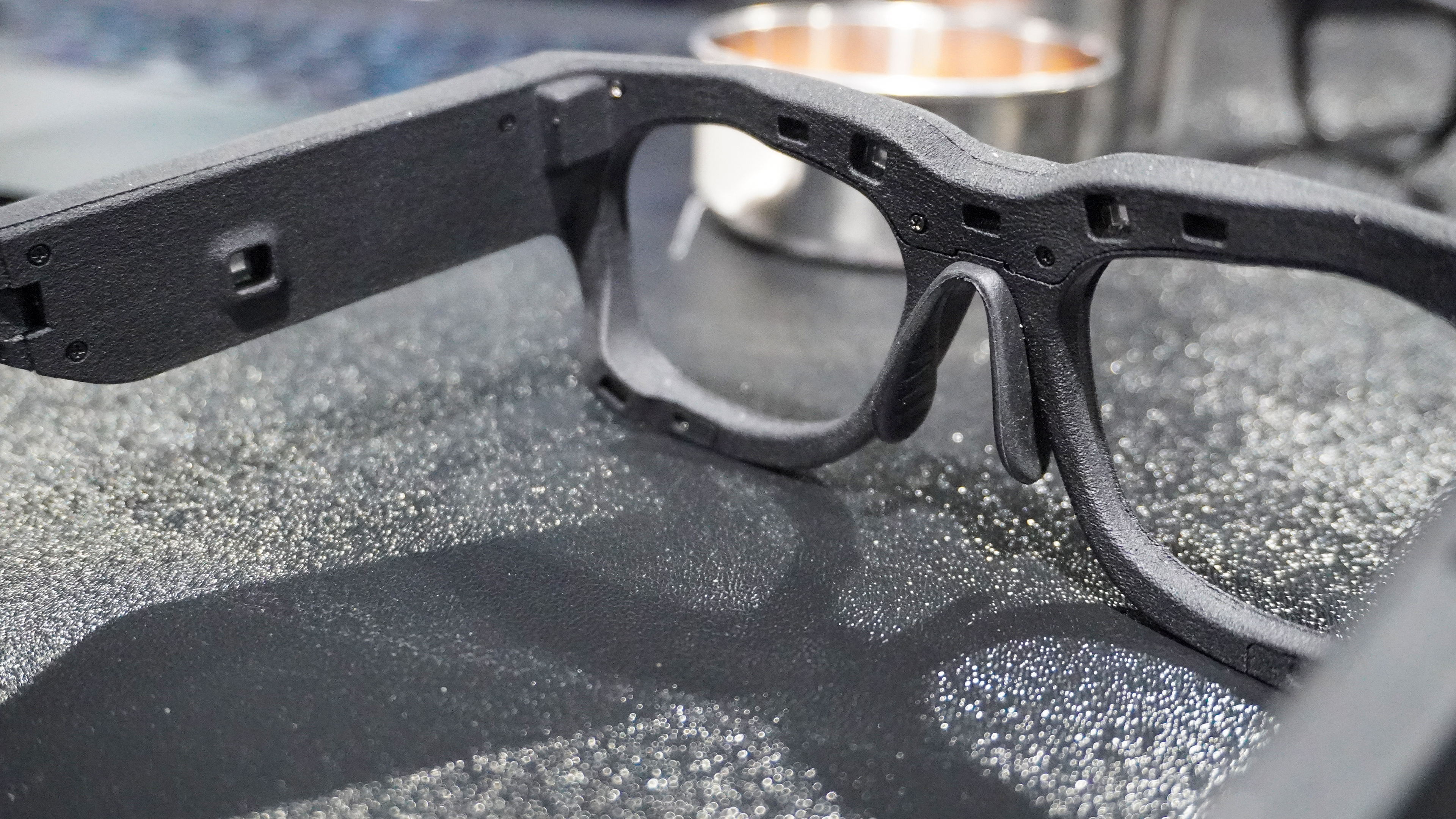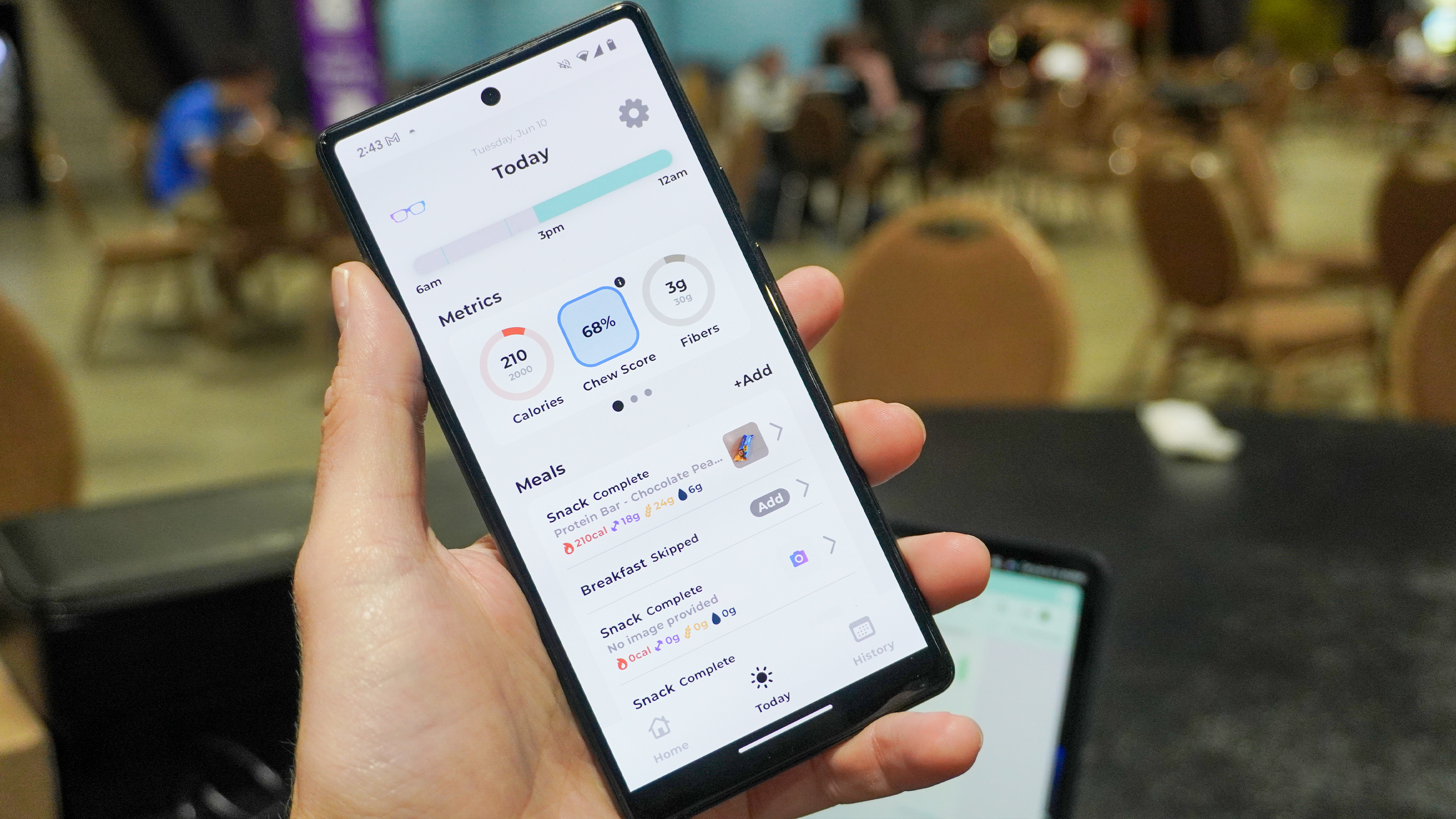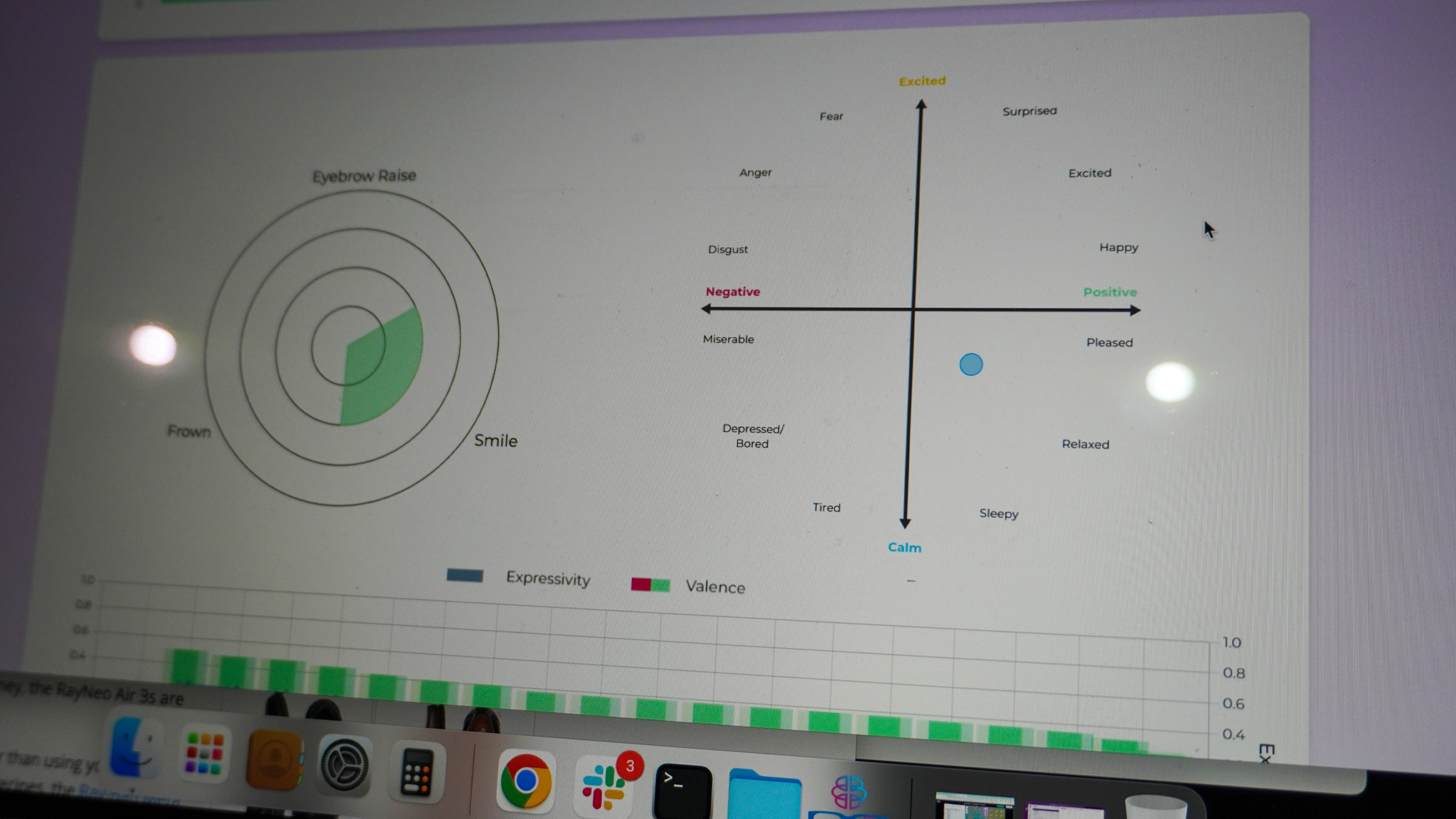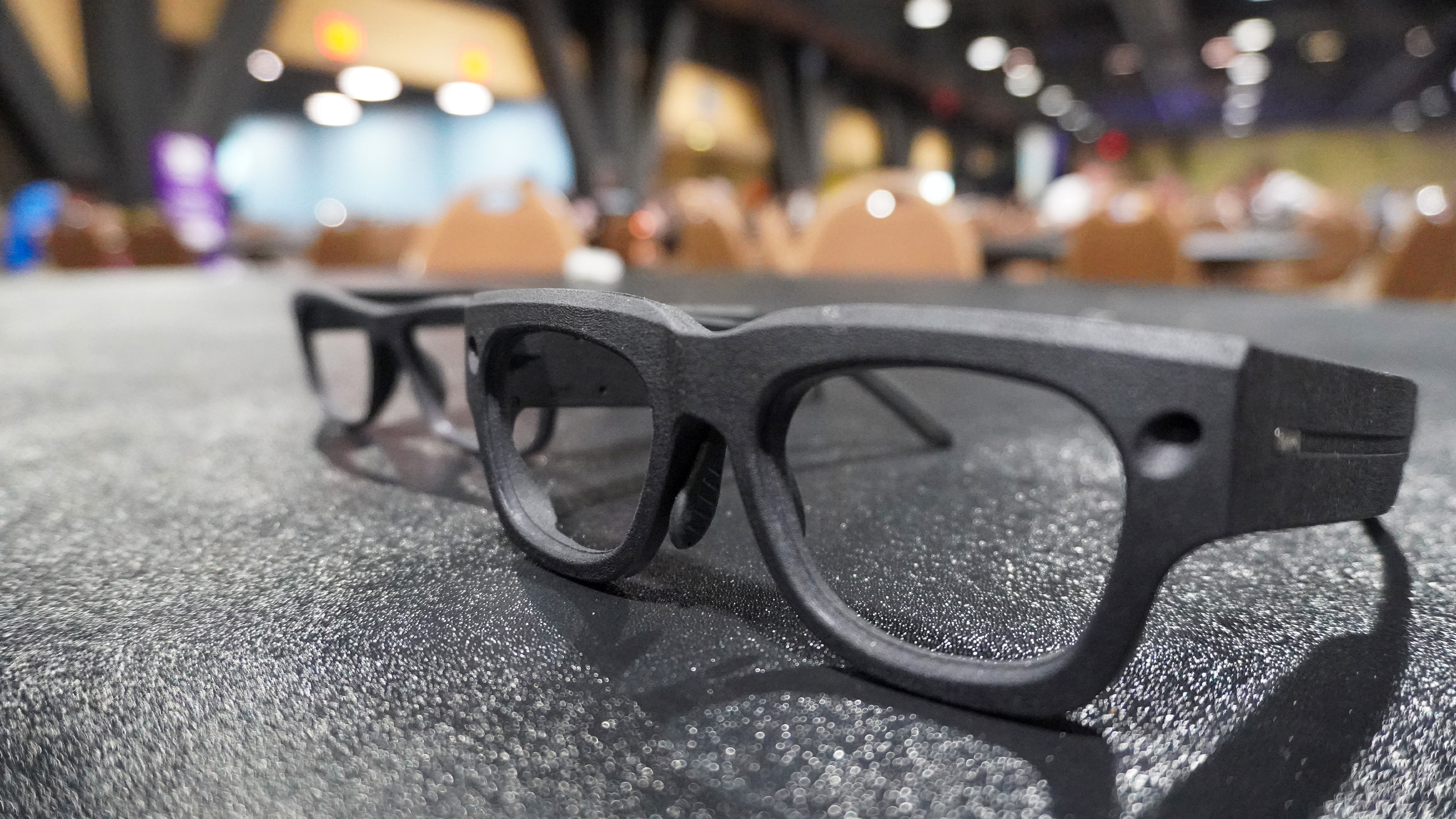I let smart glasses read my emotions and watch what I eat — and now I can’t unsee the future
They knew when I was faking a smile, and judged my chewing speed

I believe the next great fitness wearable will not be a smartwatch or smart ring — it will be glasses. I saw this for myself when trying a prototype of the new eyewear Emteq Labs is keen to launch next year.
Sporting sensors all around the rims, it can detect the subtlest of changes in your facial expressions (even those you aren’t consciously aware of doing). With this data, paired with AI, it can become a personalized life coach for your fitness, your diet and even your emotional health.
I put this to the test in my time talking to Emteq CEO, Steen Strand, to see what they can truly bring to the table for the average user and what the future holds.
What are the glasses tracking?

At the core of Emteq’s glasses are a series of nine sensors that can identify facial movements to a near-microscopic degree. They’re dotted across the bottom of the lenses in these prototypes, which are paired with AI to deliver a personalized set of specs that can sense you.
Of course, there are plenty of fascinating use-cases for these, such as using your face to interact with a computer, or adding more true-to-life emotion to your in-game character. But the one that jumped out at me is health — not just physical health but emotional health.
MyFitnessPal on steroids

Currently, health tracking via consumer tech is limited to your fitness routines — filling in Apple Watch rings and checking your sleep. These are all fair and good, but as I’ve learned in my journey of losing 20 pounds, good nutrition is just as important.
And while there are apps like MyFitnessPal that can deliver effective nutritional information. None come quite as easy to use and complex with actionable detail as Emteq’s prototype setup.
Get instant access to breaking news, the hottest reviews, great deals and helpful tips.
Using ChatGPT-4o, the on-board camera takes a snap of what you’re eating and breaks it down into total calories and detailed macros. And on top of that, it will even give you a chewing score…yep, you read that correctly.

Digestive issues and impacts on metabolic health can creep up if you chew too fast, so it’s important to take your time. So those sensors on your glasses can track biting and chewing speeds to ensure you don’t become too much of a food hoover.
“We can use AI to give you custom personalized guidance — some of that actually in real-time,” Steen added. “We have high fidelity information about how you’re eating and what you’re eating, and are already using haptic feedback for in-the-moment notifications.”
And with their ability to track activity too — tracking different exercises such as walking, running and even star jumps — this can all come together with the AI infusion to give you a far better understanding of your fitness levels.
How are you really?

Then there’s the emotion sensing piece of the puzzle. Up until this point, it’s all been very surface level — prompts to fill in a journal, heart rate tracking to detect stress, or practice deep breathing exercises. All nice-to-haves but beyond the big issue that people could just lie to their phones, nothing has really gone deeper.
We believe that understanding emotions is a force multiplier for AI, in terms of it being effective for you in the context of wearing glasses all day. If you want AI to be really effective for you, it’s critical that it understands how you’re feeling in real-time."
Steen Strand, Emteq CEO.
Well, beyond accurately assessing eating behaviors throughout the day, other data points can be used to assess emotional context, such as mood detection and posture analysis. While I’m able to fake a smile, the upper section of my face and forehead gave me away in the moment.
And then when you tap into the evergrowing popularity of people using ChatGPT for emotional support and therapy, you’re surely going to get a more personalized, more frank conversation when data is added in there too.
“We believe that understanding emotions is a force multiplier for AI, in terms of it being effective for you in the context of wearing glasses all day,” Steen commented. “If you want AI to be really effective for you, it’s critical that it understands how you’re feeling in real-time, in response to different things that are happening around you.”
It sounds creepy on paper, and it kind of is when you think about it. But it’s certainly a gateway into real emotional honesty that you may not get by rationalizing with yourself in a journal app and possibly glazing over any cracks in your mental health when filling out that survey for the day.
Outlook

Now this may all seem fascination (I think it is too), but I’m not ignorant of the key questions that come with strapping a bunch of sensors to your face: the questions of privacy surrounding a device grabbing so much data, or simply asking do we really want to be judged for our chewing.
Privacy is always a question you can have of many different items that collect a lot of information like this. And to that latter question, that’s asked with every big step forward like this. But the end result is something so much more advanced than a smart ring, and much more proactive.
Here at Augmented World Expo (AWE), I found a breadcrumb trail of a lot of things that could lead to the smart glasses of the future that everyone will wear. Emteq is probably the biggest crumb of them all, because while AI is definitely the key to unlocking XR, personalizing it is the real challenge.
Sensors and real-time data collection like this to help aid you into a better life is the clearest step towards tackling that challenge.
More from Tom's Guide
- I just tested a smart ring that can control your AR glasses — and this is what wearables have been missing
- Snap finally launching AR glasses to the public in 2026 - with built in OpenAI integration
- Forget Apple Vision Pro — visionOS 26 sets the stage for killer smart glasses

Jason brings a decade of tech and gaming journalism experience to his role as a Managing Editor of Computing at Tom's Guide. He has previously written for Laptop Mag, Tom's Hardware, Kotaku, Stuff and BBC Science Focus. In his spare time, you'll find Jason looking for good dogs to pet or thinking about eating pizza if he isn't already.
You must confirm your public display name before commenting
Please logout and then login again, you will then be prompted to enter your display name.
 Club Benefits
Club Benefits





